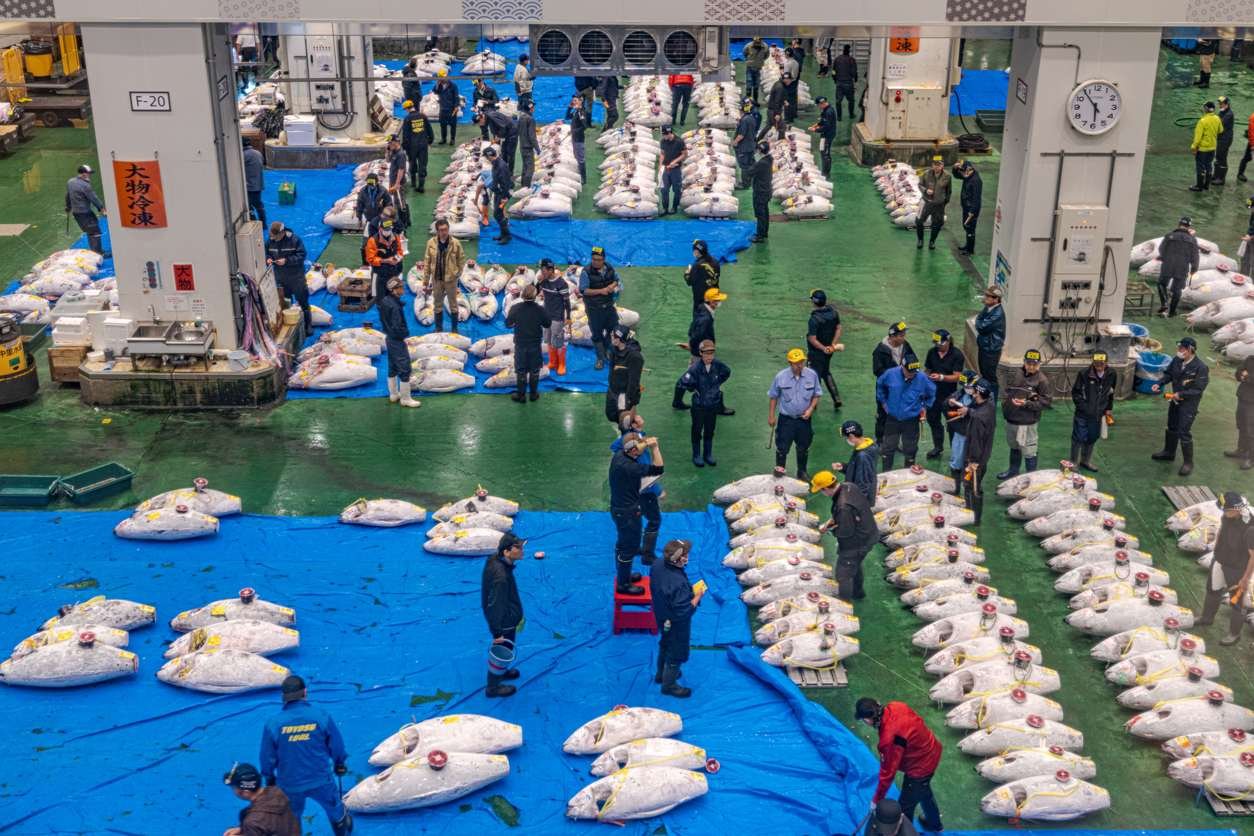A lack of data and transparency in the tuna supply chain puts investors at risk, says a new report from nonprofit think tank Planet Tracker released during this week’s United Nations’ World Ocean Conference.
The report, titled “Tuna Turner: Investors Must Turn Up Transparency in the Tuna Industry,” notes that just four of the world’s 30 largest tuna fishing companies disclose their catch data.
More than half (56%) of these top 30 companies’ catch remains “dark”—that is, untraceable. (Catch data refers to the recorded amount of tuna, by species, caught by companies.)
This “opacity” in catch data means that “investors cannot know how a company revenue will evolve in the future and which risks a company is exposed to,” François Mosnier, report author and Planet Tracker’s Head of Ocean Programme, tells AgFunderNews.
“We cannot distinguish good behavior from bad behavior without first knowing what is actually being caught, where and how on a company-by-company basis.”
A failure to address this lack of transparency will lead to “continued exposure to environmental and social risks, which when unearthed can lead to suppliers being cut from certain buyers, more stringent regulation, higher costs for investors and lack of visibility on future revenues and profits,” he adds.
Sustainability risks with the Tuna 30
The world’s top 30 tuna firms—collectively referred to the “Tuna 30″—catch almost half (46%) of all global tuna.
According to planet tracker, the Tuna 30 extract about 12% of catch from stocks that are “not at healthy levels of abundance” or are overfished. For example, the report estimates that over 40% of the harvest from SAPMER, China National Agricultural Development Group and Maruha Nichiro comes from such stocks.
Multiple tuna species are threatened with extinction right now. Albacora, Maruha Nichiro, Dongwon, Bolton Group and Sajo are likely key harvesters of these threatened species, according to the report.
“Without knowing what, where, how much and how companies fish, investors cannot know which of them are most exposed to sustainability risks,” says Planet Tracker.
“Whilst most tuna stocks are not overfished, tuna biomass has declined by 40% to 80%. And, major ecological damage persists in numerous tuna fisheries, demonstrated by millions of dead sharks and millions of plastic buoys drifting across 37% of the ocean.”

Dark side of the Tuna 30
The study used Global Fishing Watch data to reconstruct catch volumes by species and region for 2,153 industrial vessels fishing tuna globally. This is the first time research has attributed such details to actual companies and the countries in which they are headquartered, the study claims.
One major finding of the research is that more than half of all catch from the world’s top 30 tuna companies is “dark.” In other words, it can’t be associated with a company because of missing ownership and/or satellite data.
Planet Tracker defines “dark tuna” as “the difference between a company’s reported or estimated catch and the catch that we were able to assign to an AIS [automatic identification system]-tracked vessel that belong to, are operated by or linked to the company.”
It estimates that 60% of the world’s tuna catch is dark.
According to the report, some of this dark tuna may stem from the fact that Tuna 30 companies “may be spending more time fishing with their AIS switched off than on.”
“When tuna catch cannot BE publicly tracked, we can’t know the impact or the reliance of a given company on overfished stocks or threatened species,” explains Mosnier.
“That leaves revenue at risk for the companies and could prevent traceability further down the supply chain. Opaque beneficial ownership structures using shell companies based in tax havens also results in lost tax and therefore government revenue.”
The study estimates that better data on ownership information and eliminating these AIS gaps could improve profits and valuations in the industry by an average of 0.6% and 1% respectively within five years.
Plant Tracker’s report echoes statements made in other reports, such as one from investor network FAIRR that in 2024 proclaimed seafood to be “one of the most illegally produced commodities” in the world.
Better transparency ‘crucial’
Mosnier argues that better transparency in the form of corporate disclosure on catch and AIS usage is “crucial” if investors are to better understand risks in their portfolios.
Investors, argues the report, must demand full disclosure from tuna companies on this data “as a baseline for responsible investment.”
Planet Tracker urges investors to demand full disclosure from tuna companies on catch data and AIS compliance as a baseline for responsible investment.
“[They must “ask tuna fishing companies to disclose which tuna species they catch, where, how and in which quantities. They can also engage with companies on the financial implications of greater transparency, which we calculate are slightly positive,” says Mosnier.
The post Investors ‘must demand full disclosure’ of supply chain data from the world’s top tuna firms: report appeared first on AgFunderNews.














